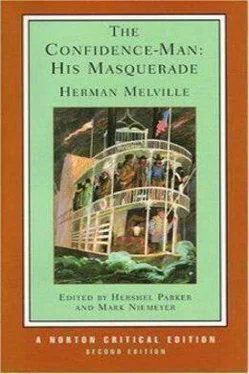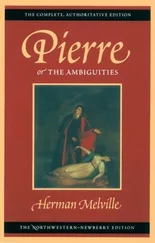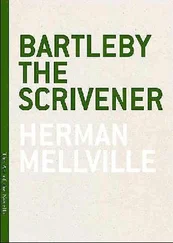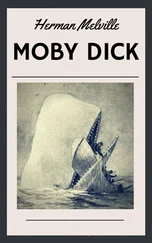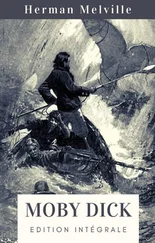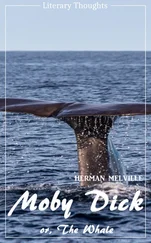'HERE LIE
THE REMAINS OF
CHINA ASTER THE CANDLE–MAKER,
WHOSE CAREER
WAS AN EXAMPLE OF THE TRUTH OF SCRIPTURE, AS FOUND
IN THE
SOBER PHILOSOPHY
OF
SOLOMON THE WISE;
FOR HE WAS RUINED BY ALLOWING HIMSELF TO BE PERSUADED,
AGAINST HIS BETTER SENSE,
INTO THE FREE INDULGENCE OF CONFIDENCE,
AND
AN ARDENTLY BRIGHT VIEW OF LIFE,
TO THE EXCLUSION
OF
THAT COUNSEL WHICH COMES BY HEEDING
THE
OPPOSITE VIEW.'
"This inscription raised some talk in the town, and was rather severely criticised by the capitalist—one of a very cheerful turn—who had secured his loan to China Aster by the mortgage; and though it also proved obnoxious to the man who, in town–meeting, had first moved for the compliment to China Aster's memory, and, indeed, was deemed by him a sort of slur upon the candle–maker, to that degree that he refused to believe that the candle–maker himself had composed it, charging Old Plain Talk with the authorship, alleging that the internal evidence showed that none but that veteran old croaker could have penned such a jeremiade—yet, for all this, the stone stood. In everything, of course, Old Plain Talk was seconded by Old Prudence; who, one day going to the grave–yard, in great–coat and over–shoes—for, though it was a sunshiny morning, he thought that, owing to heavy dews, dampness might lurk in the ground—long stood before the stone, sharply leaning over on his staff, spectacles on nose, spelling out the epitaph word by word; and, afterwards meeting Old Plain Talk in the street, gave a great rap with his stick, and said: 'Friend, Plain Talk, that epitaph will do very well. Nevertheless, one short sentence is wanting.' Upon which, Plain Talk said it was too late, the chiseled words being so arranged, after the usual manner of such inscriptions, that nothing could be interlined. Then,' said Old Prudence, 'I will put it in the shape of a postscript.' Accordingly, with the approbation of Old Plain Talk, he had the following words chiseled at the left–hand corner of the stone, and pretty low down:
'The root of all was a friendly loan.'"
Chapter XLI.
Ending With a Rupture of the Hypothesis.
"With what heart," cried Frank, still in character, "have you told me this story? A story I can no way approve; for its moral, if accepted, would drain me of all reliance upon my last stay, and, therefore, of my last courage in life. For, what was that bright view of China Aster but a cheerful trust that, if he but kept up a brave heart, worked hard, and ever hoped for the best, all at last would go well? If your purpose, Charlie, in telling me this story, was to pain me, and keenly, you have succeeded; but, if it was to destroy my last confidence, I praise God you have not."
"Confidence?" cried Charlie, who, on his side, seemed with his whole heart to enter into the spirit of the thing, "what has confidence to do with the matter? That moral of the story, which I am for commending to you, is this: the folly, on both sides, of a friend's helping a friend. For was not that loan of Orchis to China Aster the first step towards their estrangement? And did it not bring about what in effect was the enmity of Orchis? I tell you, Frank, true friendship, like other precious things, is not rashly to be meddled with. And what more meddlesome between friends than a loan? A regular marplot. For how can you help that the helper must turn out a creditor? And creditor and friend, can they ever be one? no, not in the most lenient case; since, out of lenity to forego one's claim, is less to be a friendly creditor than to cease to be a creditor at all. But it will not do to rely upon this lenity, no, not in the best man; for the best man, as the worst, is subject to all mortal contingencies. He may travel, he may marry, he may join the Come–Outers, or some equally untoward school or sect, not to speak of other things that more or less tend to new–cast the character. And were there nothing else, who shall answer for his digestion, upon which so much depends?"
"But Charlie, dear Charlie―"
"Nay, wait.—You have hearkened to my story in vain, if you do not see that, however indulgent and right–minded I may seem to you now, that is no guarantee for the future. And into the power of that uncertain personality which, through the mutability of my humanity, I may hereafter become, should not common sense dissuade you, my dear Frank, from putting yourself? Consider. Would you, in your present need, be willing to accept a loan from a friend, securing him by a mortgage on your homestead, and do so, knowing that you had no reason to feel satisfied that the mortgage might not eventually be transferred into the hands of a foe? Yet the difference between this man and that man is not so great as the difference between what the same man be to–day and what he may be in days to come. For there is no bent of heart or turn of thought which any man holds by virtue of an unalterable nature or will. Even those feelings and opinions deemed most identical with eternal right and truth, it is not impossible but that, as personal persuasions, they may in reality be but the result of some chance tip of Fate's elbow in throwing her dice. For, not to go into the first seeds of things, and passing by the accident of parentage predisposing to this or that habit of mind, descend below these, and tell me, if you change this man's experiences or that man's books, will wisdom go surety for his unchanged convictions? As particular food begets particular dreams, so particular experiences or books particular feelings or beliefs. I will hear nothing of that fine babble about development and its laws; there is no development in opinion and feeling but the developments of time and tide. You may deem all this talk idle, Frank; but conscience bids me show you how fundamental the reasons for treating you as I do."
"But Charlie, dear Charlie, what new notions are these? I thought that man was no poor drifting weed of the universe, as you phrased it; that, if so minded, he could have a will, a way, a thought, and a heart of his own? But now you have turned everything upside down again, with an inconsistency that amazes and shocks me."
"Inconsistency? Bah!"
"There speaks the ventriloquist again," sighed Frank, in bitterness.
Illy pleased, it may be, by this repetition of an allusion little flattering to his originality, however much so to his docility, the disciple sought to carry it off by exclaiming: "Yes, I turn over day and night, with indefatigable pains, the sublime pages of my master, and unfortunately for you, my dear friend, I find nothing there that leads me to think otherwise than I do. But enough: in this matter the experience of China Aster teaches a moral more to the point than anything Mark Winsome can offer, or I either."
"I cannot think so, Charlie; for neither am I China Aster, nor do I stand in his position. The loan to China Aster was to extend his business with; the loan I seek is to relieve my necessities."
"Your dress, my dear Frank, is respectable; your cheek is not gaunt. Why talk of necessities when nakedness and starvation beget the only real necessities?"
"But I need relief, Charlie; and so sorely, that I now conjure you to forget that I was ever your friend, while I apply to you only as a fellow–being, whom, surely, you will not turn away."
"That I will not. Take off your hat, bow over to the ground, and supplicate an alms of me in the way of London streets, and you shall not be a sturdy beggar in vain. But no man drops pennies into the hat of a friend, let me tell you. If you turn beggar, then, for the honor of noble friendship, I turn stranger."
"Enough," cried the other, rising, and with a toss of his shoulders seeming disdainfully to throw off the character he had assumed. "Enough. I have had my fill of the philosophy of Mark Winsome as put into action. And moonshiny as it in theory may be, yet a very practical philosophy it turns out in effect, as he himself engaged I should find. But, miserable for my race should I be, if I thought he spoke truth when he claimed, for proof of the soundness of his system, that the study of it tended to much the same formation of character with the experiences of the world.—Apt disciple! Why wrinkle the brow, and waste the oil both of life and the lamp, only to turn out a head kept cool by the under ice of the heart? What your illustrious magian has taught you, any poor, old, broken–down, heart–shrunken dandy might have lisped. Pray, leave me, and with you take the last dregs of your inhuman philosophy. And here, take this shilling, and at the first wood–landing buy yourself a few chips to warm the frozen natures of you and your philosopher by."
Читать дальше
